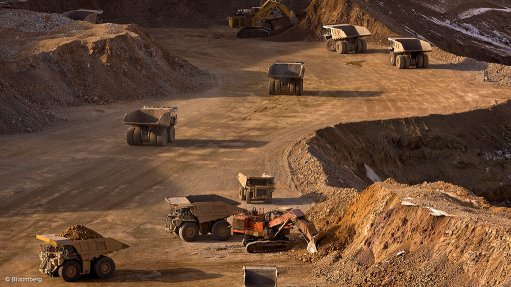
Photo by: Bloomberg
PERTH (miningweekly.com) – The Western Australian resources sector has lamented the delay in the passage of the Western Australian Mining Legislation Amendment Bill as the Parliamentary Standing Committee on Legislation made further changes to the Bill.
Former Mines and Petroleum Minister Bill Marmion in February this year referred the Bill to the Legislative Council for committee examination.
Under the proposed new legislation, many low-impact exploration and prospecting activities, which present minimal environmental risk or impact, would become eligible for immediate approval in nonenvironmentally sensitive areas.
Separate native vegetation clearing permits would also no longer be required in addition to Mining Proposals or Programmes of Work, thus reducing duplication.
It was also intended that an environmental management system (EMS) would need to be in place for all mining operations, which most companies already have to meet their environmental liability obligations and community expectations. The detail of the EMS would be proportionate to the scale of the mining operation. The EMS obligation would not be applicable to exploration or prospecting tenements.
In its report released this week, the Legislation Committee made 26 findings and 18 recommendations on the Bill.
However, the Western Australian Chamber of Minerals and Energy (CME) has warned that the adoption of all the recommendations would have negative consequences for the resources sector.
“Addressing the committee’s long list of recommendations will delay the removal of unnecessary red tape and streamlining of environmental approvals which was the original intent of the Bill,” CME CEO Reg Howard-Smith said.
This included a recommendation for the definition of low-impact activities to be incorporated as a schedule to the Mining Act and compulsory aspects of ‘guidelines’ to be addressed as requirements in the Act itself or in regulations.
“This more prescriptive approach may lead to inefficiencies in the future application of the legislation and introduce further red tape for industry,” Howard-Smith said.
“Resource companies are currently grappling with volatile global market dynamics, increasing input costs and other complex policy and regulatory settings.
“Any amendments to the Bill should be quickly prioritised to allow for swift passage through Parliament in the second half of 2016.”
The Association of Mining and Exploration Companies (Amec) has also warned that there would be delays in the passage of the Bill as the new Minister for Mines and Petroleum, Sean L`Estrange, worked through the committee recommendations.
“This will also inevitably delay implementation of the benefits contained in the Bill,” said Amec national policy manager Graham Short.
Short noted that although the committee acknowledged that the Department of Mines and Petroleum (DMP) had the ability to charge fees through the existing provisions of the Mining Act, it did not recommend removal of the specific clauses empowering the ability to create assessment fees for Programmes of Work and Mining Proposals.
“As the previous Mines and Petroleum Minister indicated that the implementation of such fees would only be deferred, Amec remains extremely concerned that the departmental budget shortfall of A$2.7-million per annum to implement and staff its Reforming Environment Regulation agenda, will be met through other means such as a non-transparent hike in other DMP tenement rentals, fees or charges,” Short said.
“The proposal to introduce new assessment fees was a major bone of contention between the Minister and the industry, particularly noting that the Treasury already annually collects in excess of A$80-million from existing tenement rentals, fees and charges. Amec considers that any budget shortfall should be met directly from the consolidated account.”